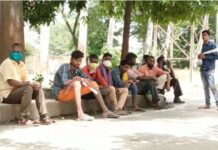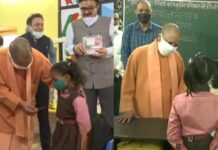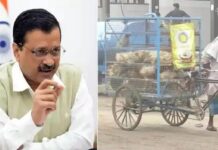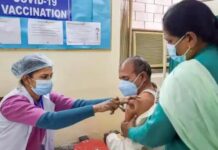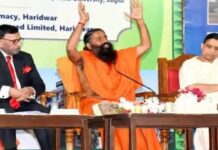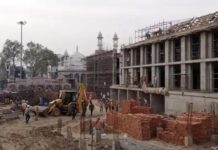40+ Thematic Sessions and over 180 Expert Presentations Explore Key WASH Challenges
Event showcases India’s leadership in rural water management through initiatives like Jal Jeevan Mission and Swachh Bharat Mission
Emphasizes need for global partnerships, community-led solutions, and technology-driven innovations to tackle future water challenges
Posted On: 19 SEP 2024 10:05PM by PIB Delhi
The Department of Drinking Water and Sanitation (DDWS), Ministry of Jal Shakti, organized the International WASH (Water, Sanitation, and Hygiene) Conference on the sidelines of the 8th India Water Week held between 17th-19th September 2024, in New Delhi. This three-day gathering, centered on the theme ‘Sustaining Rural Water Supply’, offered a platform for knowledge exchange, showcasing innovations, and sharing best practices aimed at addressing global WASH challenges, with a special focus on achieving Sustainable Development Goal 6 (SDG 6).
The conference witnessed the august presence of Smt. Vini Mahajan, Secretary, DDWS, Shri Ashok K. K. Meena, Officer on Special Duty, DDWS, Shri Chandra Bhushan Kumar, Additional Secretary & Mission Director, National Jal Jeevan Mission (NJJM), and other eminent officials from DDWS, officers from States/UTs, RWPF partners and the paper presenters.
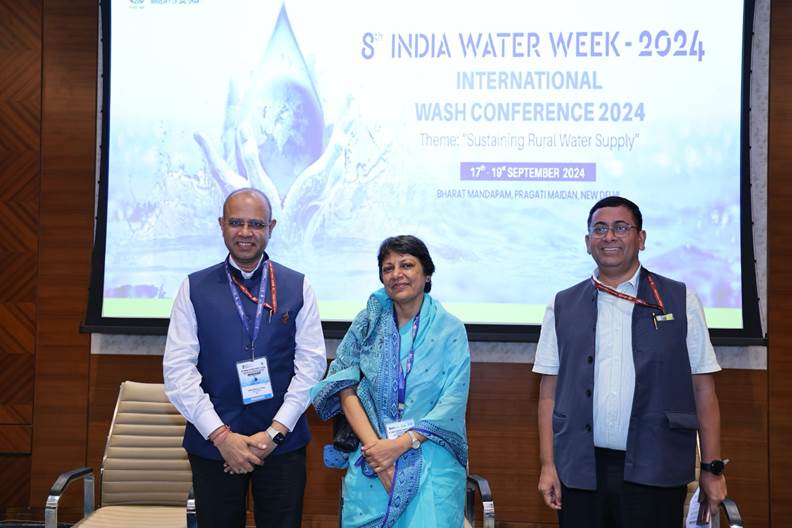
The event featured over 40 sessions (offline and online), 143 offline paper presentations, 43 online paper presentations, and 5 panel discussions, exploring a wide range of topics such as water quality, greywater management, community engagement, Information, Education and Behaviour Change Communication (IEC/BCC) initiatives, and climate change adaptation, among others.
Day-1 kickstarted with key sessions on water disinfection technologies and the role of community engagement in ensuring sustained water supply schemes. The National Safe Water Dialogue showcased the impact of JJM, with deliberations on topics such as – Lessons from implementing water disinfection technologies at scale, community engagement and impact assessment of Jal Jeevan Mission.
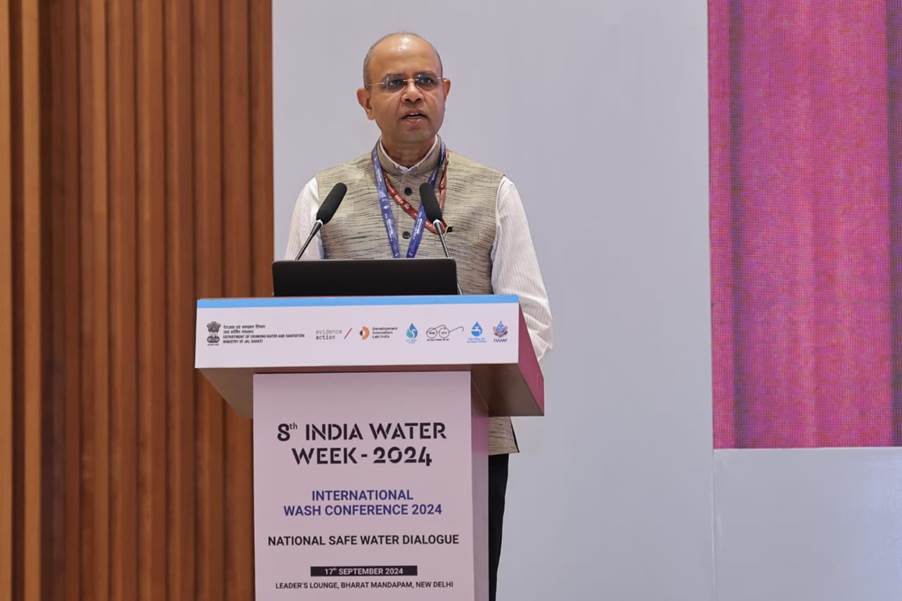
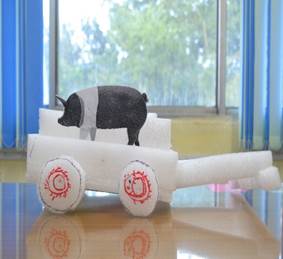
Day-2 was dedicated to deliberations on digital public infrastructure, highlighting how SCADA and IoT systems are transforming water management. Shri Ashok K. K. Meena, OSD-DDWS, in his keynote address underscored the role of technology in improving water quality monitoring and service delivery. Concurrent sessions were held at SPM NIWAS in Kolkata, focussing on different aspects of water management, such as digital innovations, IoT (Internet of Things), and their role in enhancing water management systems.
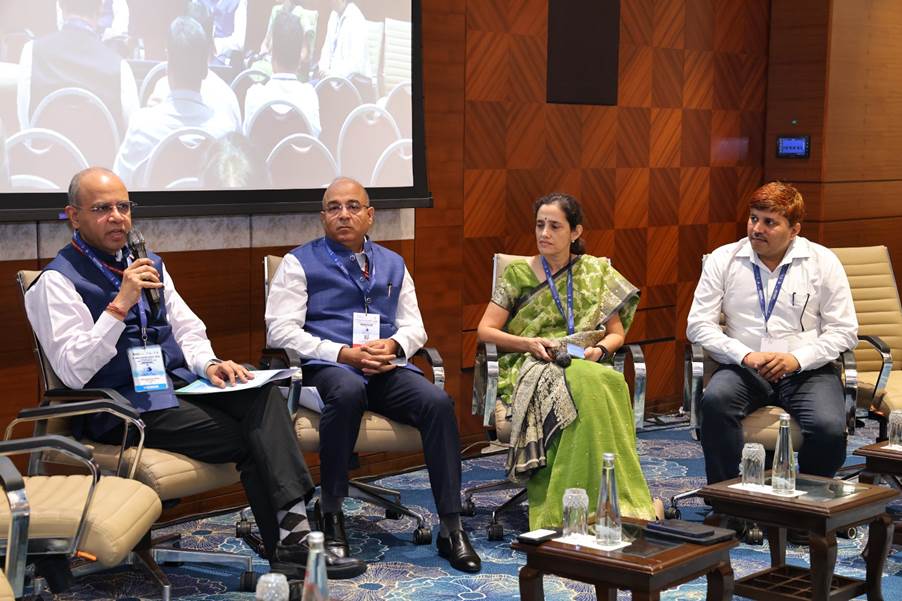
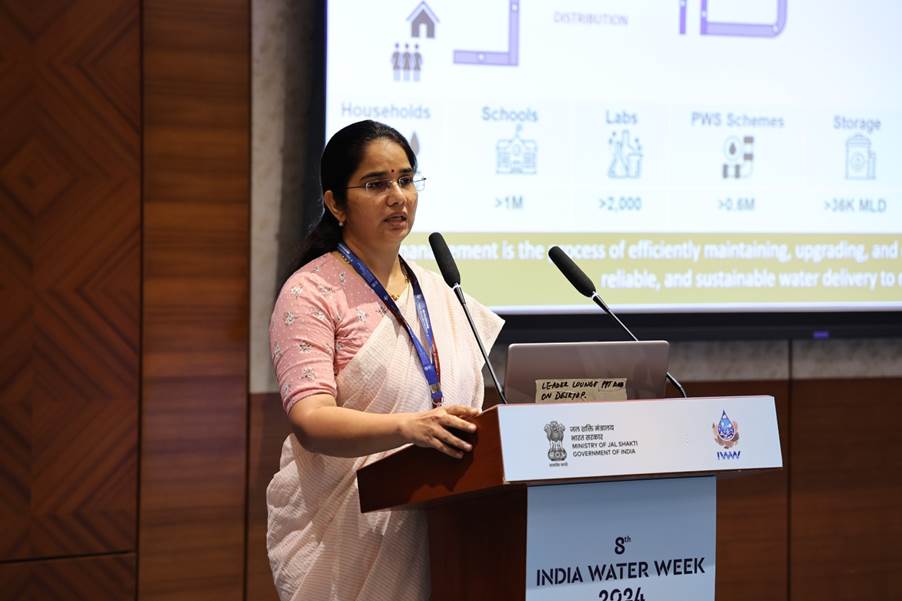
Day-3 opened with a panel discussion on ‘Achieving Universal Access to Rural Drinking Water’, chaired by Smt. D. Thara, Additional Secretary in the Ministry of Housing and Urban Affairs, and co-chaired by Dr. Chandra Bhushan Kumar, AS&MD-NJJM. Challenges and opportunities in rural water management, the need for collaboration between rural and urban water governance, role of community participation for long-term operational viability of water supply systems were some of the main topics of discussion.
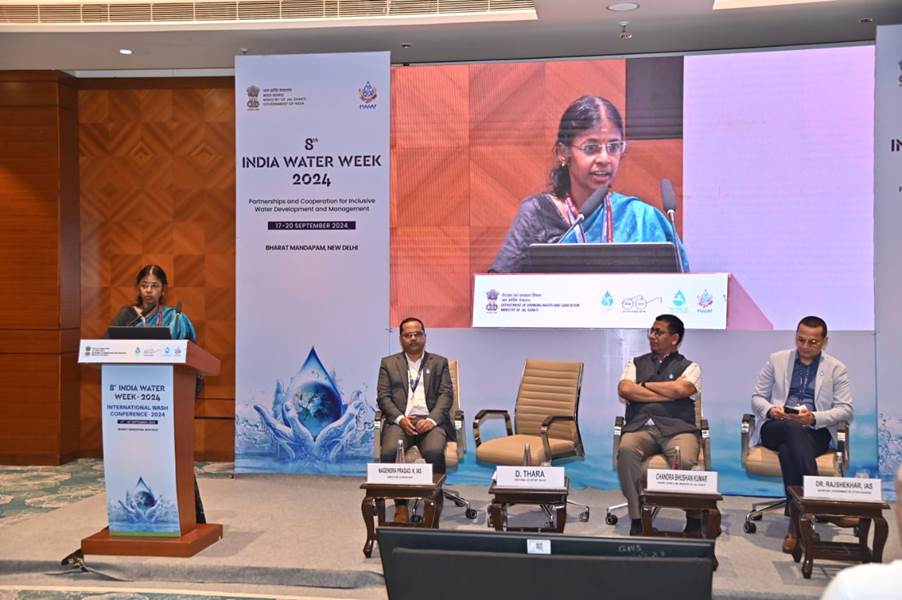
The session on Behaviour Change Communication (BCC) under JJM delved into critical need for structured BCC to foster public trust in tap water as a reliable source of safe drinking water. The discussions also highlighted the integration of innovative solutions for climate change adaptation and disaster management, emphasizing the importance of global knowledge exchange to tackle water challenges, safeguard communities, and promote resilience across diverse regions.
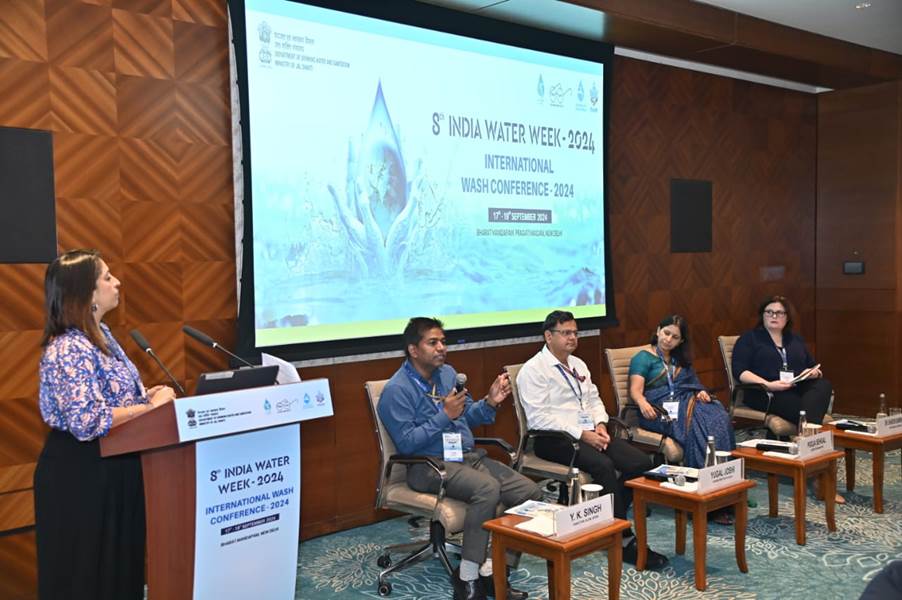
Exhibition
Swachh Sujal Gaon, a model village, reflecting India’s comprehensive approach to strengthening WASH sector in rural areas, stood as the centerpiece of the event. The exhibition, held over three days, provided a platform for States/ UTs to display their innovations and best practices, offering valuable insights into sustainable water management and sanitation efforts across the country.
Looking Forward
The International WASH Conference 2024 concluded with significant outcomes and actionable insights. The event showcased India’s leadership in rural water management through initiatives like Jal Jeevan Mission and Swachh Bharat Mission, while also emphasizing the need for global partnerships, community-led solutions, and technology-driven innovations to tackle future water challenges.
*****





